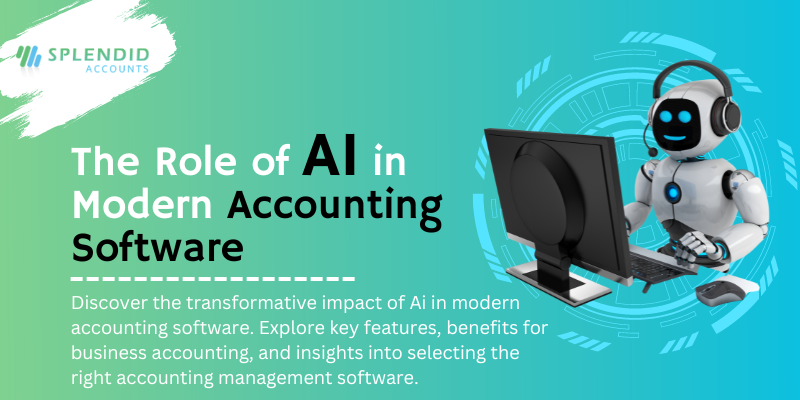
Introduction
Artificial Intelligence (AI) is reshaping the landscape of accounting software, revolutionizing how businesses manage their finances. In this comprehensive guide, we explore the details of AI-driven accounting systems, exploring key features, benefits, challenges, and future trends.
Evolution of Accounting Software
The evolution of accounting software has witnessed a paradigm shift, from traditional ledger systems to sophisticated AI-powered platforms. Understanding this journey is crucial in appreciating the depth of innovation that AI brings to modern accounting practices.
Key Features of Modern AI-Powered Accounting Software
Modern AI-powered accounting software boasts many features, including automated data entry, smart categorization, and predictive analytics. These features not only streamline accounting processes but also contribute to more accurate financial reporting.
Benefits for Business Accounting Management
Incorporating AI into accounting systems elevates business accounting management to new heights. Real-time financial insights, automated compliance checks, and enhanced decision-making capabilities empower businesses to make informed choices promptly.
Data Security in AI-Driven Accounting Systems
Addressing concerns about data security, AI-driven accounting systems implement robust security measures. Advanced encryption, secure access controls, and real-time threat detection ensure the confidentiality of sensitive financial information.
Comparison with Traditional Accounting Methods
A comparative analysis between AI-driven and traditional accounting methods highlights the efficiency gains achieved through AI. Reduced errors, faster processing times, and improved data accuracy distinguish AI-powered systems from their conventional counterparts.
Selecting the Right AI Accounting Software
Choosing the right AI accounting software is a critical decision for businesses. Factors such as scalability, integration capabilities, and user-friendly interfaces should be considered to maximize the benefits of AI in accounting.
Implementing AI: Overcoming Challenges
While the benefits of AI in accounting are immense, implementing it may pose challenges. Overcoming resistance to change, ensuring proper training, and addressing integration issues are crucial steps for successful AI implementation.
Case Studies: AI Success Stories in Accounting
Real-world case studies demonstrate the tangible impact of AI in accounting. Examining success stories provides insights into how businesses have leveraged AI to drive efficiency, reduce costs, and gain a competitive edge.
Future Trends in AI-Based Accounting Systems
As technology advances, the future holds exciting possibilities for AI-based accounting systems. Predictive analytics, machine learning advancements, and increased personalization are among the trends shaping the next generation of accounting software.
Impact of AI on Small Business Accounting
AI isn’t exclusive to large enterprises; its impact on small business accounting is equally profound. Cost-effective AI solutions tailored for small businesses empower them to compete on a level playing field.
Conclusion
In conclusion, the role of artificial intelligence in modern accounting software is transformative. Businesses that embrace AI-driven solutions position themselves for unparalleled efficiency, accuracy, and competitiveness in the dynamic landscape of financial management.
